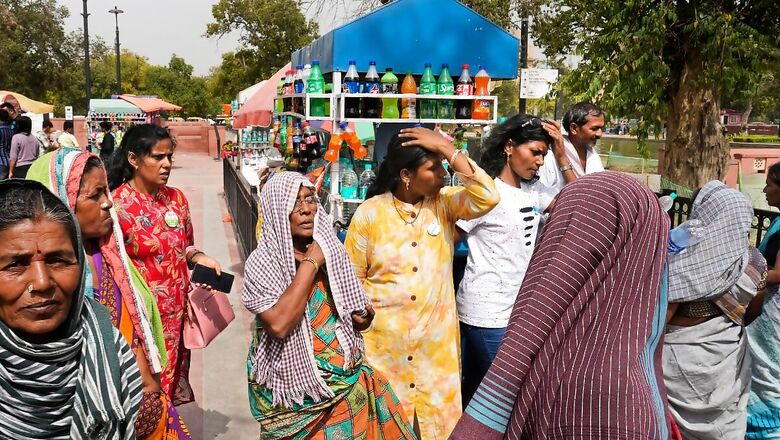
views
The current Heat Action Plans (HAP) for cities and districts are ineffective in mitigating the oppressive heat that claimed hundreds of lives across India this summer, according to a recent assessment led by Delhi-based think tank iForest.
Deadly heatwaves battered India during the last three months claiming hundreds of lives, despite heat action plans (HAPs) being in place in all the 23 vulnerable states/UTs. In addition to this, 200 cities/districts also have their local action plans. The team at iForest – the International Forum for Environment, Sustainability and Technology – studied the action plans for nine cities and five districts and found that they mostly “consist of general information and recommendations, and are not designed for action”.
LACK IMPACT-ASSESSMENT, HEAT-REDUCTION STRATEGY
According to the study, most action plans are not tailored for local heat thresholds and lack proper impact assessment on sectors like energy, power, transport, agriculture and water.
“The biggest drawback of the National Disaster Management Authority (NDMA) guidelines for HAP is that they are weak in implementing heat-reducing strategies. The focus is on adaptation and creating awareness. It needs to be more specific and actionable. Another problem is that it lacks financial and legal backing due to which the implementation is weak on the ground,” said Dr Chandra Bhushan, President and CEO of iFOREST. “To add to it, there is no guidance on integration of HAP into city planning and building bye-laws.”
India was scorched by deadly heatwaves from April to June 20 this year with temperatures hovering above 45°C for weeks with unusually long dry weather. The heatwave spell in May-June was one of the longest on record, and far more intense, leading to a spike in heat-related illnesses and hospitalizations.
The study also recommends that city heat action plans must analyse the disproportionate impact of Urban Heat Island effect, and identify hotspots where effective mitigation measures can be adopted.
“None of the HAPs currently have a specific action plan for hotspots and vulnerable populations,” the team noted.
NOT LEGALLY ENFORCEABLE, NO FINANCE PROVISION
The lack of adequate finance provisions has proved to be the biggest bane for HAPs, according to experts. Since HAPs contain expensive structural investments and expansions of human resource capacity, financing shortfalls have often led to non-implementation, they added. The action plans do not mention funding mechanisms and advise the departments to self- allocate resources from existing budgets.
Delhi was assessed as a separate case-study, and the team found that it had no specific plan for heatwave hotspots/vulnerable populations. While other cities have prepared HAPs since 2013, Delhi notified its first HAP only in 2023 – a decade later, and notified its latest HAP at the onset of summer in April. “The departments were unprepared and lacked capacity to deal with such high-intensity heatwaves,” said Dr Chandra Bhushan.
NOTIFY HEATWAVES AS DISASTER UNDER DM ACT, 2005
In its recommendations, the environment think-tank has pressed on the need to notify heatwave as a natural disaster and include it under the Disaster Management Act, 2005. Some states like Odisha and Kerala have already included it as a local disaster in their respective states. According to the experts, this would provide a comprehensive legal framework and finances to state governments to better manage the disaster.
The think-tank has also proposed a new Heat and Cooling Action Plan (HCAP) framework to be adopted at the city level. “With temperatures soaring to an unprecedented level, cooling has become a necessity rather than a privilege. Heat waves will increase across the country, and will certainly have a devastating impact on health, economy, and livelihoods. We must prepare for this eventuality as countries are not doing enough to reduce greenhouse gas emissions and hence global warming. Developing a comprehensive HAP will aid in saving lives and livelihoods,” added Dr Chandra Bhushan.

















Comments
0 comment